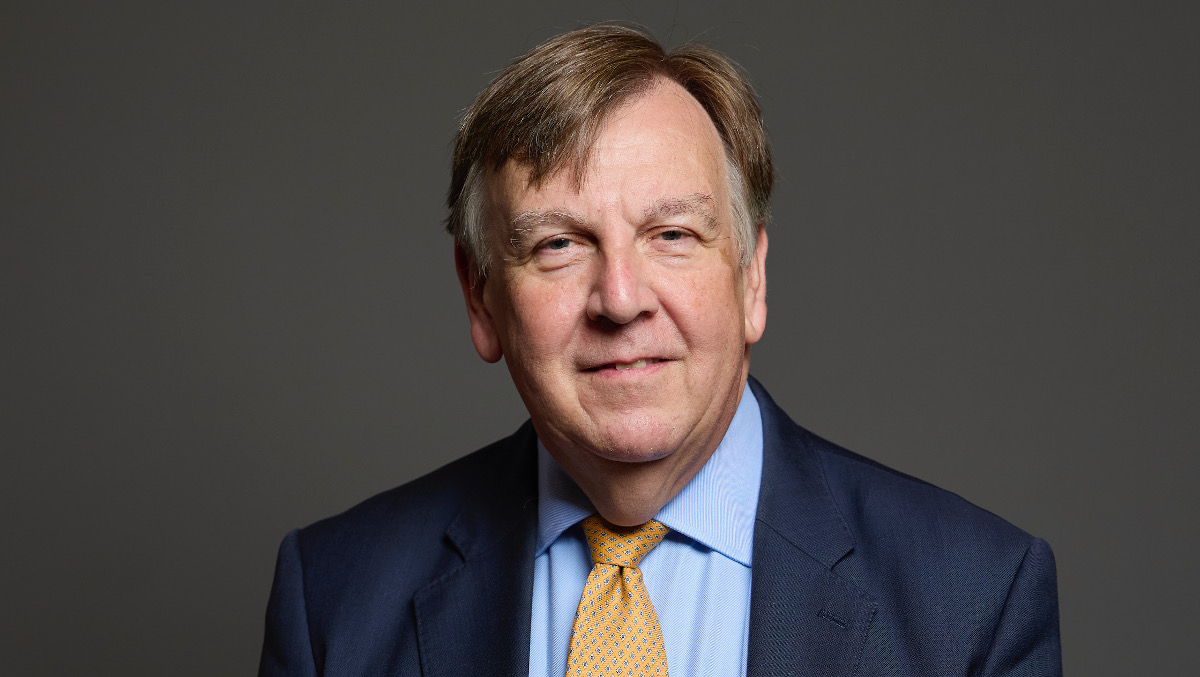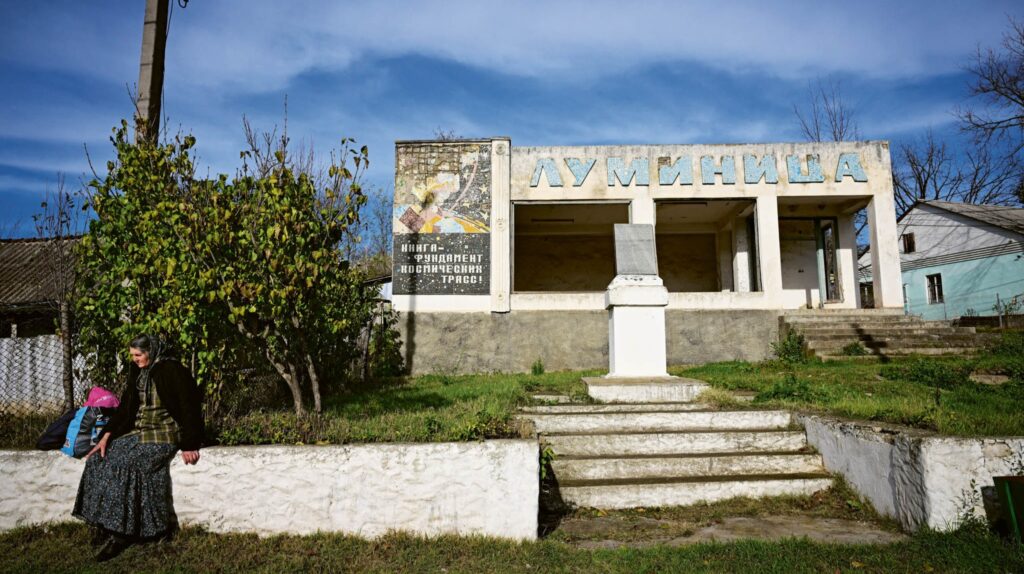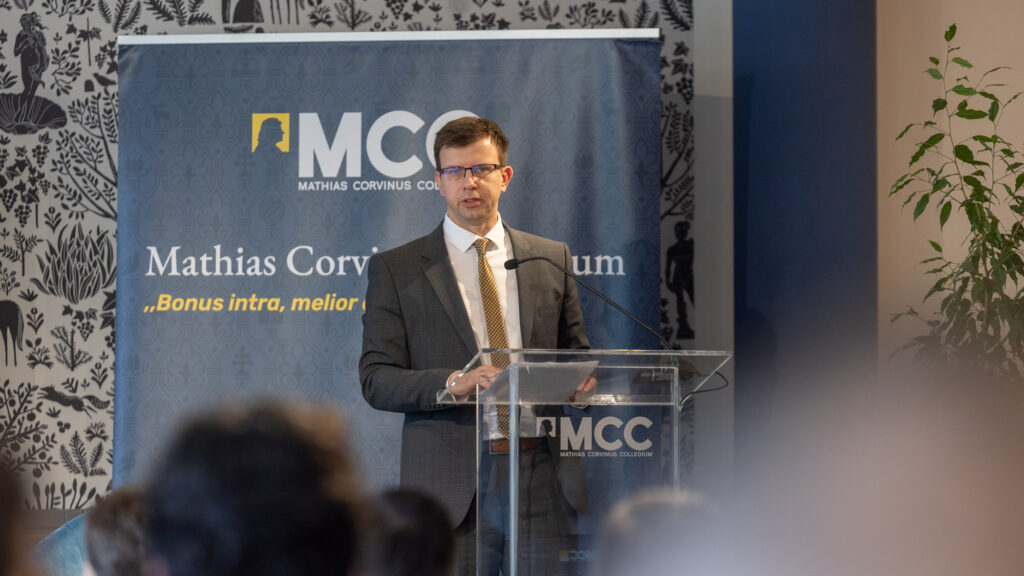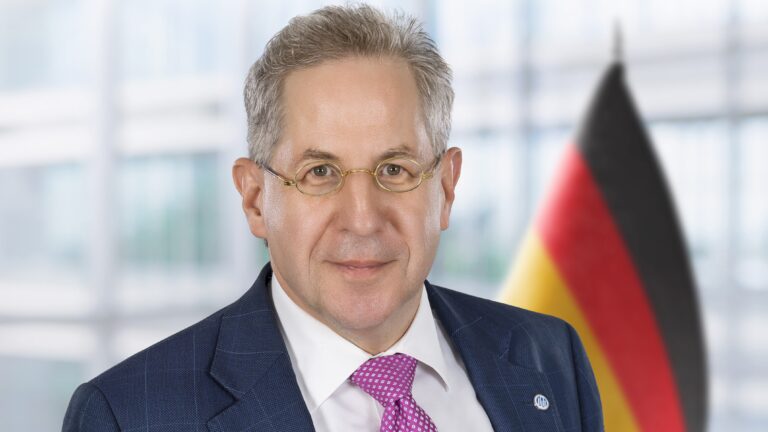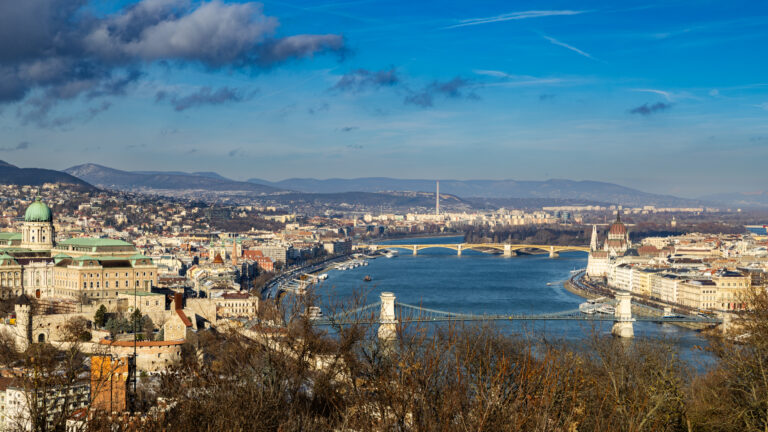John Whittingdale is a British Conservative Member of Parliament. He has been an MP since the 1992 general election. Whittingdale was privately educated at both Sandroyd School and Winchester College, followed by University College London, where he was chairman of UCL Conservative Society. From 1982 to 1984, he was head of the political section of the Conservative Research Department. Then, in 1988, he became Political Secretary to PM Margaret Thatcher. Upon her resignation, Whittingdale was appointed an Officer of the Order of the British Empire. Between 2015 and 2016, he served as Secretary of State for Culture, Media and Sport, and in 2023 as Minister of State for Media, Tourism and Creative Industries.
***
Most of the youngsters are liberal, but in your teens and twenties, you were already conservative. You were, as a student at University College London, the Chairman of the UCL Conservative Society. What made you conservative at such a young age?
Well, when I was at school, before I went to university, that was the time when the Conservative Party was having its leadership election, in 1975, and I came from a conservative family. We were tasked at school to write an essay on who we would support in the leadership election. Margaret Thatcher was presenting a very different kind of conservatism from that of the previous leader, Edward Heath, and I was attracted by her ideas, so I became a Thatcherite, I suppose, whilst I was still at school, and that led me to continue conservative politics.
Your university years coincide with the first term of Margaret Thatcher as Prime Minister. Can you name some of her characteristics that were very impressive for you?
Well, she was a very strong leader right from the start. She confronted the great threats to the country—obviously the Russian threat, the Soviet threat at that time—but also internally, it was a time when we were subject to terrorism from Northern Ireland, and she stood up against the IRA, the terrorist movement. She presented a very strong leadership, a courage in leadership which we haven’t seen for a long time.
One of the best training grounds for future Conservative politicians was the Conservative Research Department—you also started to work there. What is this institution about? And is it a straight route to a government office?
There are quite a few people who became Conservative MPs and started their careers in the Conservative Research Department. Going right back to former leading conservatives like Rab Butler, Enoch Powell, that’s back in the 60s. So it’s quite a recognized training ground, if you like. I went to work there before I went to university, just as a messenger, so to say, and then I went back.
‘She presented a very strong leadership, a courage in leadership which we haven’t seen for a long time’
My first encounter with Margaret Thatcher was in 1983, the hard general election, when I was asked to accompany her on her tour of the country campaigning. And that’s when I first met her. And I was just 24 at that time.
You were 29 when you were asked to join her team in 1988. During the 80s, did you have any connection with her before you got the invitation?
When I left university, I went back to work for the party, but I became what we call a special adviser to a member of the Cabinet who was very close to her, Norman Tebbit. I continued working as an adviser to his two successors in the department he ran. So I was quite well experienced in working in Conservative politics. Then, in 1987, we had a second general election, and I was asked to go back and do the same job of accompanying her. That was when I was really able to get to know her—and, more importantly, when she got to know me a little bit.
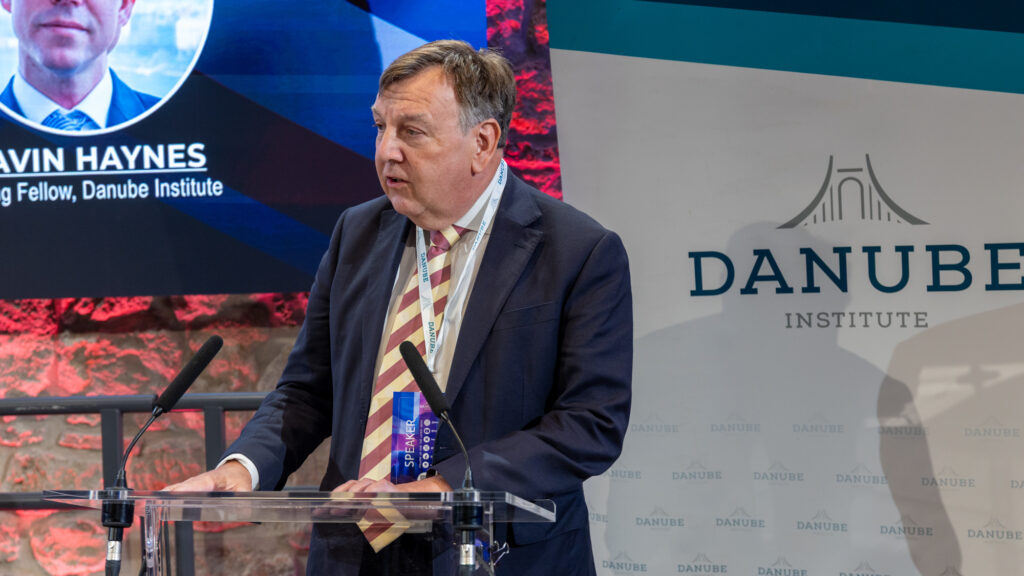
How did the invitation come from her to be a political secretary?
Well, I actually had left politics after the 1987 election. I felt I would go and get experience elsewhere, so I went to work in the city of London. But a friend of mine, who was the political secretary to Margaret Thatcher in Downing Street, rang me one day and said that he had been doing the job for five years, and he felt it was time that he moved on, and would I be interested in taking over? And I think the reason I was asked was that she had worked with me, or she’d seen me working for her in those two previous elections, so she at least knew who I was. And Stephen Sherbourne, my predecessor, recommended me. And there was no sort of competition. There was no interview. I was just called in to see her, and she said: ‘Well, I understand you’re coming to work with us.’ And I said: ‘Thank you very much, Prime Minister.’
What was your job about?
At that time, the Prime Minister’s staff were almost all civil servants. They were officials who would work for whichever Prime Minister had been elected on that day, and they would continue—if there was a change of government, they still worked for the incoming Prime Minister. My job was that of a political appointee. I was another member of her private office, which had about five people. I was the political secretary, and my job was to handle all the activities which the Prime Minister undertook that were of a party-political kind, which included most things, because we operate a party system with fierce competition between the governing party and the opposition. So I helped her with the political element of all her activities.
Margaret Thatcher was originally a chemist. She came from the world of science to politics. But was the chemistry between you and her good?
I would like to think so. I was obviously very young when I went to work for her. I was 29, as you say, and she had already been Prime Minister for nine years. It was an extraordinarily intimidating thing to go and work for somebody who was, by that stage, probably the most important and influential leader in the Western world.
‘I was the political secretary, and my job was to handle all the activities which the Prime Minister undertook’
President Reagan was elected after her, to some extent, you know, so she therefore influenced him, and she was certainly seen to be in command on the world stage. And for someone my age to find themselves working for her was utterly extraordinary.
Iron Lady, that was her image; she was elegant and strong-willed. Was she rigid and strict in person, in a close working relationship?
Firstly, she was very demanding. She had an extraordinary work ethic. She worked immensely long hours. Almost nobody could keep up with her, and she expected great things from the people who worked for her. But on the other hand, she was very loyal to her own staff. So while she could be quite strong in her criticism if she felt that something you had done was not what she expected, and she would tell you in those uncertain terms, on the other hand, she would not allow anybody else to criticize her staff. And she inspired enormous loyalty from anybody who worked for her.
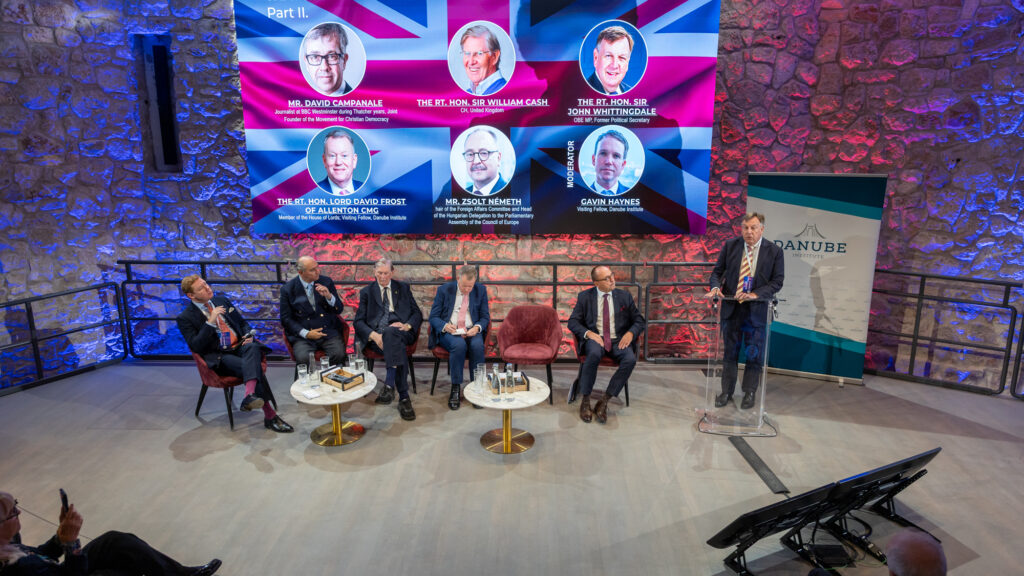
Talking about her politics, let’s start with the economics. There was the Big Bang. Many praise Mrs Thatcher for handling the economy well. When she came to power, there was a huge amount of unemployment in the UK, inflation, and a looming recession. What was the secret of her policies that by the middle of the 80s, the UK could emerge from the abyss?
Well, you have to remember this situation, which she inherited when she became prime minister: Britain was in a real mess. We had to go to the International Monetary Fund to borrow money because we were spending too much and were essentially bankrupt. And at the same time, the country was being held to ransom by the trade unions, who were hugely powerful, so we had an appalling record of strikes across a lot of the industries which were in state ownership at that time.
So what she did was a combination of policies. She reformed Trade Union law to strip back their power, and they were no longer able to paralyse the country through strikes. She also privatized a lot of those industries. She believed very strongly that industries did better under private ownership, rather than the state. And thirdly, she brought spending under control, and she introduced, or at least her Chancellor of the Exchequer introduced, in the first budget after she was elected, some very tough measures which cut spending in order to reduce the deficit. And the conventional wisdom of the time was that the last thing you should do in a recession was to spend. That was Keynesianism. She had adopted and been persuaded by the economic policies advocated by Milton Friedman—monetarism—and she was the first to practice those. And people said it would be an economic disaster for the UK. Actually, it saved the country.
Let’s talk about foreign policy. Mrs Thatcher honestly believed in Gorbachev’s reforms, and that he intended to do rather good. The West won the race; finally, the Soviet Union collapsed. What was Thatcher’s part in that victory?
Before Gorbachev became the leader of the Soviet Union, the Cold War was at its height, and there was real tension between East and West. One of the things Margaret Thatcher did was agree to the deployment of cruise missiles—intermediate-range nuclear weapons—on British soil. That was fiercely unpopular in Britain, but she saw it as absolutely essential to demonstrate to the Soviet Union that we would respond if there were any kind of aggression.
And so that stepped up the arms race, if you like, with the result that the Soviet Union simply couldn’t match it. I think Gorbachev—whom she identified early on as an up-and-coming leader who was different, and with whom she could build a relationship—recognized that the Soviet Union would never win an arms race against the West. So he had to introduce reforms—Glasnost, Perestroika—which eventually led to the collapse of communism and the liberation of the communist bloc.
‘And so that stepped up the arms race, if you like, with the result that the Soviet Union simply could not match it’
The other significant foreign policy issue was European integration. She was Eurosceptic: very sceptical about the integration of European countries. Why was she so anti-integration?
Well, she campaigned in favour of Britain joining the European Economic Community—as it was called at the time—in 1975, and in 1976 Britain became a member state. So we were joining a trading bloc, a free trading area, and she believed very strongly in free trade. Britain was given assurances that we would not lose sovereignty, that the ultimate authority of the British Parliament would be maintained, and she supported that. But what alarmed her was that it became apparent there was an agenda among the other countries of Europe that went far beyond free trade. The name changed to the European Union, and it became part of the protocol—‘ever closer union’—leading eventually to a federal state. That was not what she had campaigned to join. It was not what many Conservatives wanted. And ultimately, that direction of travel toward a kind of Europe none of us wanted to see led to the referendum in 2016—and, of course, to Britain’s leaving the EU.
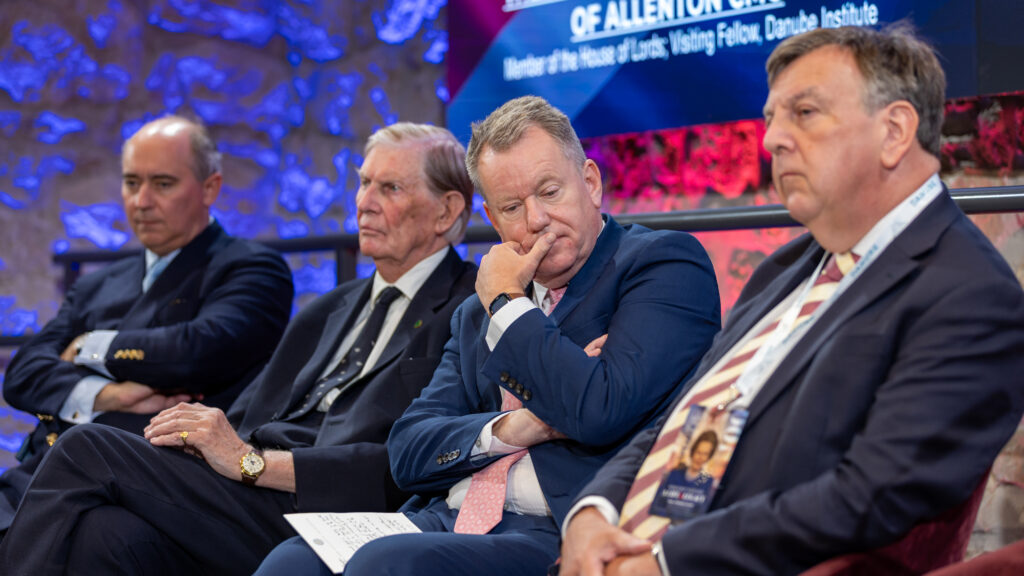
You supported that idea. But seeing the fruits of Brexit, has it still been a good decision?
Yes. I mean, I campaigned for Britain to leave the European Union because I was opposed to the superstate. I am an elected member of the British Parliament. I believe that the British Parliament is the right place to make decisions about the governance of Britain, and I, too, was in favour of joining the economic community when that was what it was. But I think that she was the first person to say that Europe is going in the wrong direction. She made a famous speech, in which she said: We did not roll back the frontiers of the state in Britain, only to have them reimposed from Brussels. And that was really the beginning of Britain’s departure, or certainly moving away from the rest of Europe.
If you needed to name the most successful policy of hers, which would that be?
She turned Britain around. She rescued Britain from an economic disaster zone, and that took real courage. So it’s the economic policies—some of those she introduced, like the privatization of many of our state industries and the reform of the trade unions—that will never be reversed.
‘She was the first person to say that Europe is going in the wrong direction’
She changed Britain, and there are so many areas in which her intervention was enormously effective. Even subsequent Labour Prime Ministers recognized the necessity of what she did, and Britain would not be as powerful or as successful today had it not been for her.
How would you describe the term Thatcherism?
Well, it’s based on a combination of economic liberalism. She believed in a small state, in deregulation, in low taxation, and in individuals being allowed to keep as much of the money they earn as possible. But alongside that, she believed in strong law and order. She believed in strong national defence, in the sovereignty of nation-states. And it’s that combination which essentially is Thatcherism—and which, certainly, my party continues to support.
What is her living political legacy in British politics today?
I think globally, the fact that so many of the countries which were under the yoke, under the control of the Soviet Union, and Hungary is an obvious example, the fact that they are free and democratic today is in large part due to the resiliency and strength of Margaret Thatcher, in combination with Ronald Reagan, since that partnership changed the world. In British terms, I mean, some of the reforms she made certainly could never be reversed, and she is still hugely admired across Britain. You know, it’s now 30 years on, and people still talk about the legacy of Margaret Thatcher.
Watch the full podcast below:
What is the Iron Lady’s political legacy? | Danube Lectures
Listen on Spotify: https://open.spotify.com/episode/298ZgVUYSmvmVnGzWLuusL?si=dc636f8090b14fa8 0:00 – Introduction 1:12 – What made John Whittingdale a Conservative in his teenage years? 2:12 – Which characteristics of Mrs. Thatcher were impressive to Conservatives at the beginning of her premiership? 3:00 – Was the Conservative Research Department a direct route to a government office?
Related articles:

